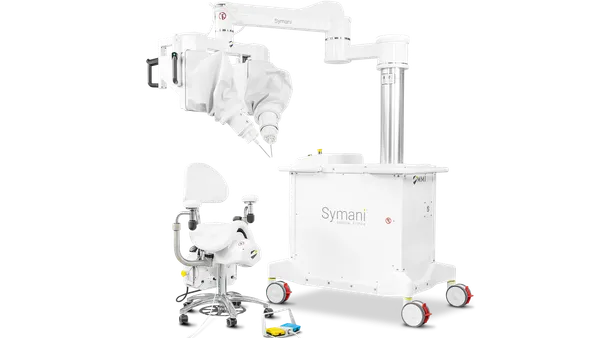Dive Brief:
- Nearly 80% of patients that have an infection from a cardiac implant are not treated according to clinical practice guidelines, increasing their chances of death from infection, according to data presented at the American College of Cardiology's annual meeting.
- The study, which was presented Sunday at ACC's conference, examined data from over 1 million Medicare patients from 2006 to 2019. According to the data, 78.9% of patients did not have devices extracted following a diagnosis of an infection, while 13% of patients had devices extracted within six days of diagnosis and 5.1% between seven to 30 days. The data showed that removing devices within six days of infection was associated with a lower mortality risk.
- When patients with implantable cardiac devices have an infection, current practice guidelines state that "removal is recommended for all patients with definite [cardiovascular implantable electronic devices] system infection," according to documents from the Heart Rhythm Society that were shared by Philips. "This is an important message about a persistent gap in care: These devices should be removed when an infection occurs, and their removal saves lives," Sean Pokorney, lead author of the study, said in a press release from Duke University's health center.
Dive Insight:
The study examined data from 1,065,549 patients with implanted cardiac devices, such as a pacemaker or cardioverter-defibrillator, and with infection more than 12 months after implantation. The patients were all from the Medicare population and were ages 65 or older.
Patients that had a device removed within six days of infection had a 36% lower risk of death compared to no removal. According to data in the Duke press release, the one-year mortality was 32.4% for patients without extraction within 30 days, compared to 18.5% among patients who had extractions within six days and 23.2% for patients who had extractions on days seven to 30.
The study did not just show that the majority of patients overall were not receiving device removal following infection, but that Black patients and female patients were less likely to have a device removed than others.
Jonathan Piccini, a lead investigator on the study and the Director of Cardiac Electrophysiology section at the Duke Heart Center, said in a press release from Philips that ensuring patients have access to guideline-recommended care can be life-saving.
"This study highlights the life-threatening nature of device infections and the significant opportunities to improve care in these complex patients. The findings also emphasize the importance of timely diagnosis and complete treatment," Piccini said.
Philips said that the study was done independently by Duke University with support from a company research grant, adding that "Philips had no role in the design or conduct of the analysis." The medtech does have products used for device removal following cardiovascular implantable electronic device (CIED) infection, however, and they were mentioned in the press release.
About 1 million CIEDs are implanted globally every year, and about one out of 20 of these patients will experience an infection within three years, according to the Philips release. While patients with CIED infections are treated with antibiotics, there is a high chance that infections will relapse, requiring device removal.
Of the patients examined for the study across 14 years, roughly 11,619 (or 1.1%) contracted a CIED infection. Annually, about 16,000 patients globally contract a CIED infection and "are at risk each year due to improper treatment," according to Philips.
"Any extraction was associated with lower mortality when compared to no extraction, but the highest benefit was to those who had devices removed within six days of an infection," said Pokorney, who is also an electrophysiologist and cardiologist in the Department of Medicine at Duke. "This speaks to the importance of putting systems in place to identify these patients and get them quickly and appropriately treated, because delays in care result in higher mortality."














